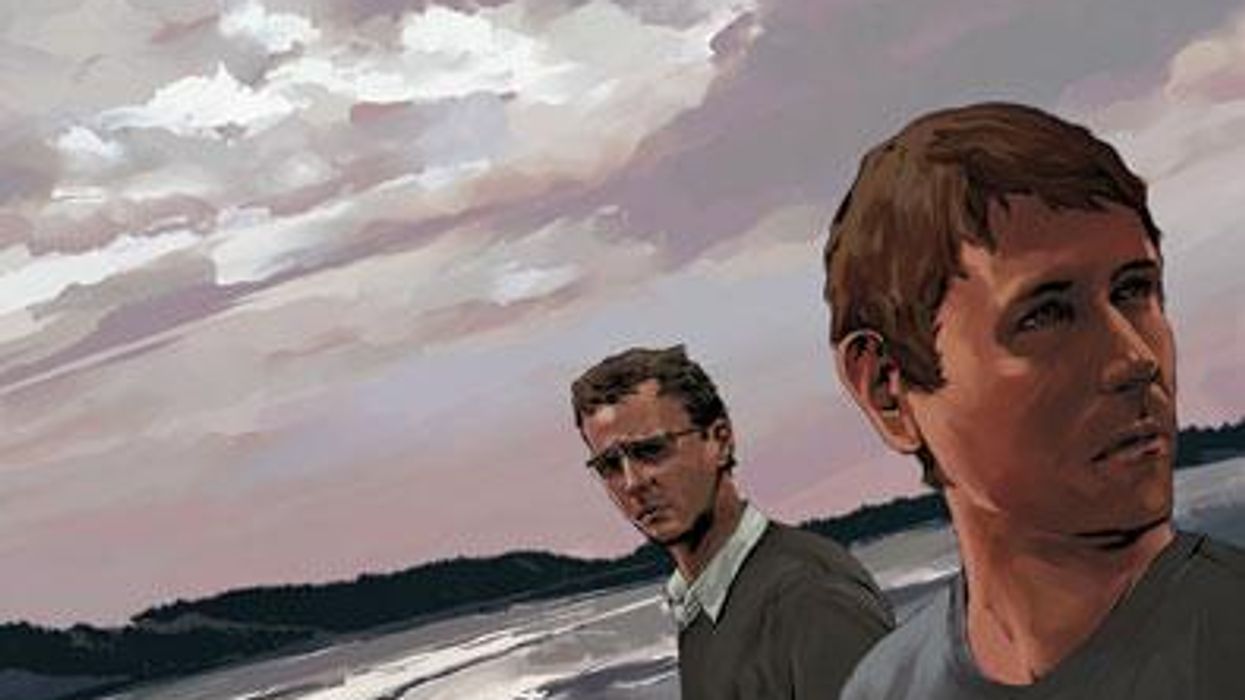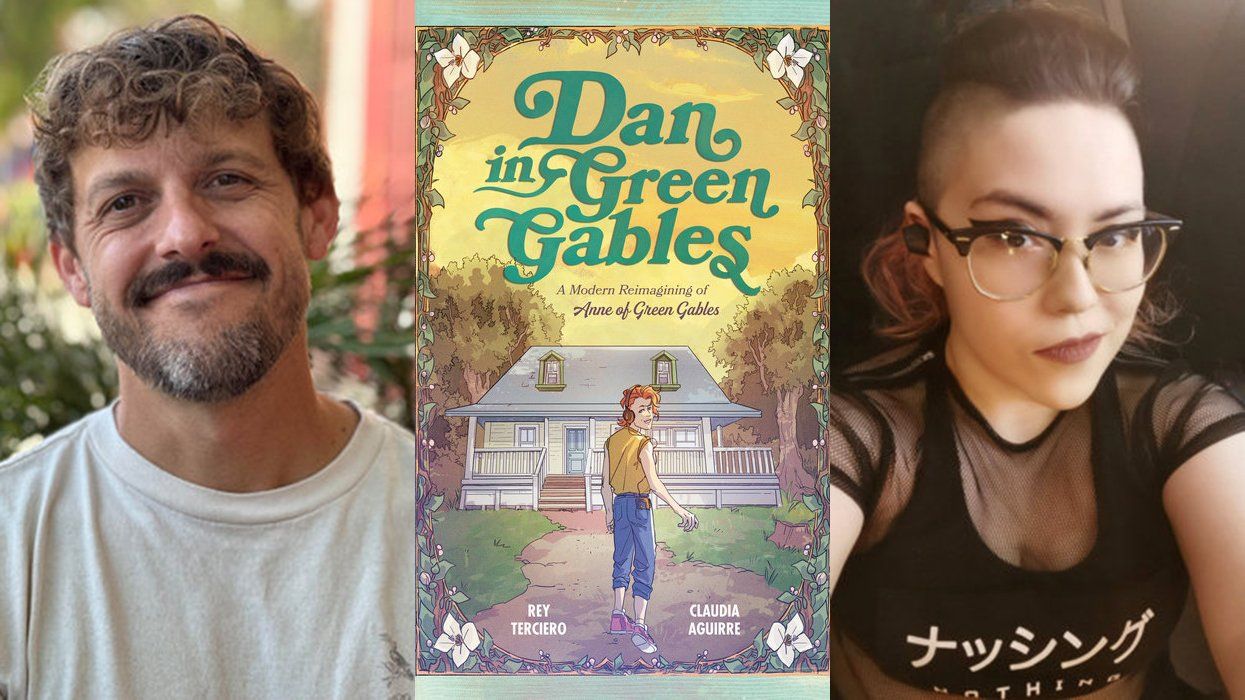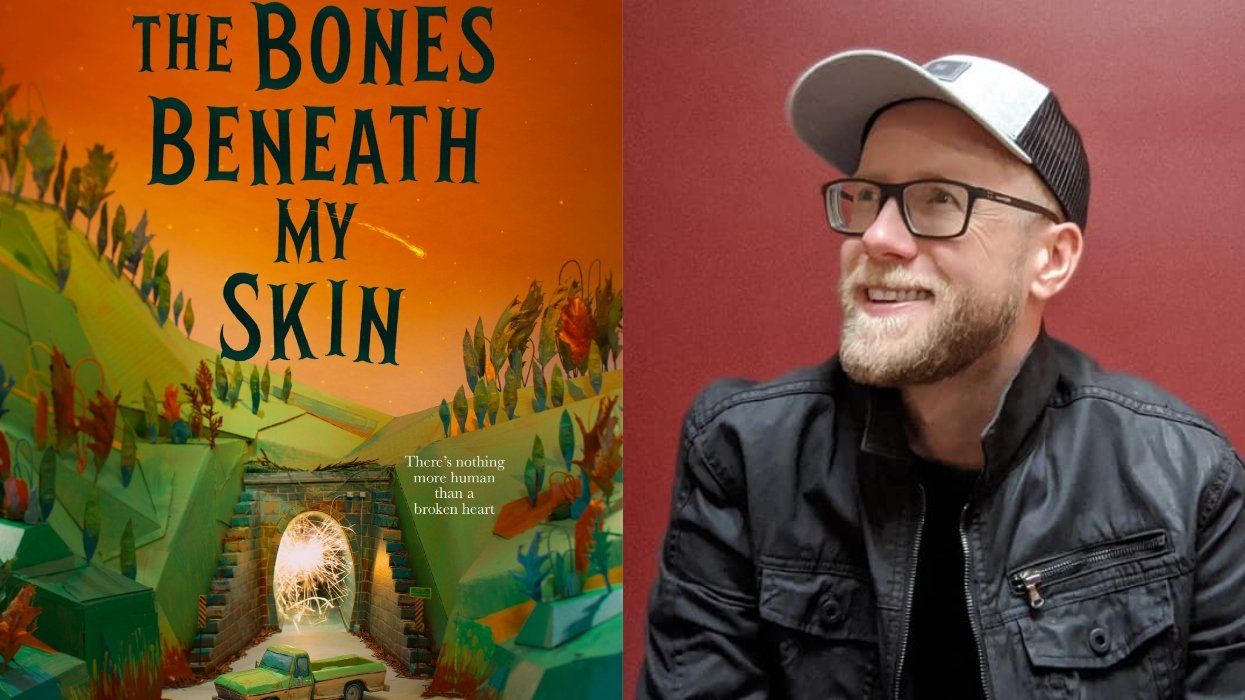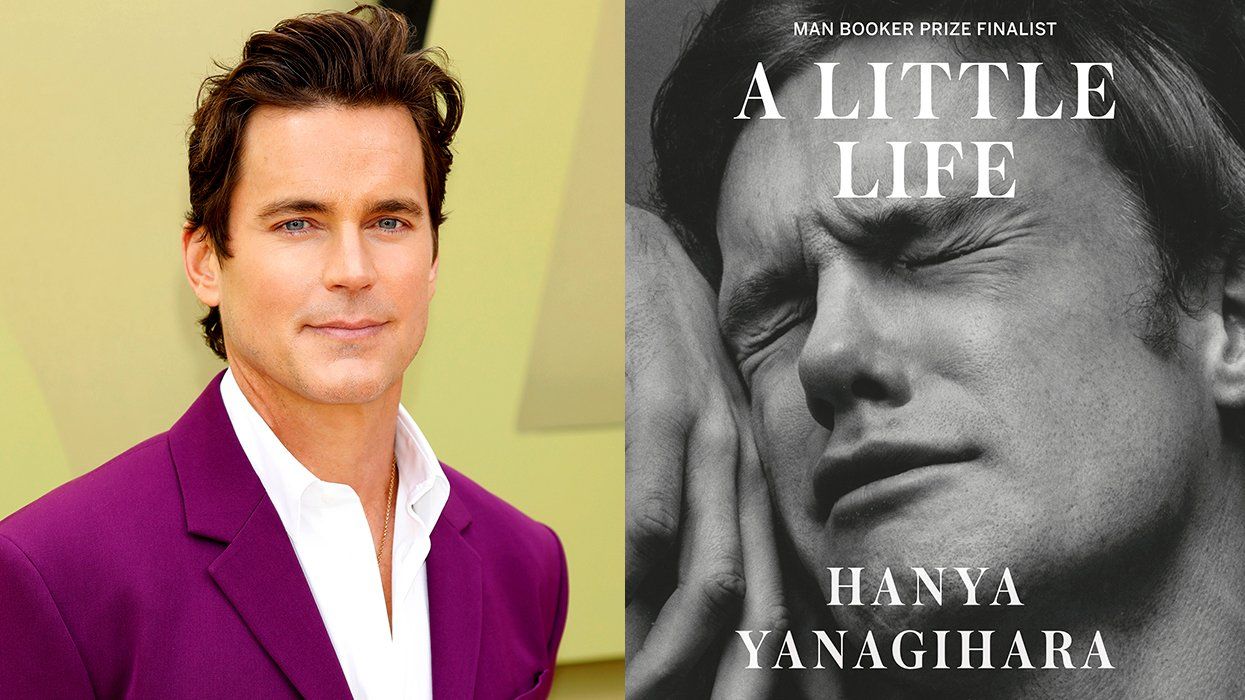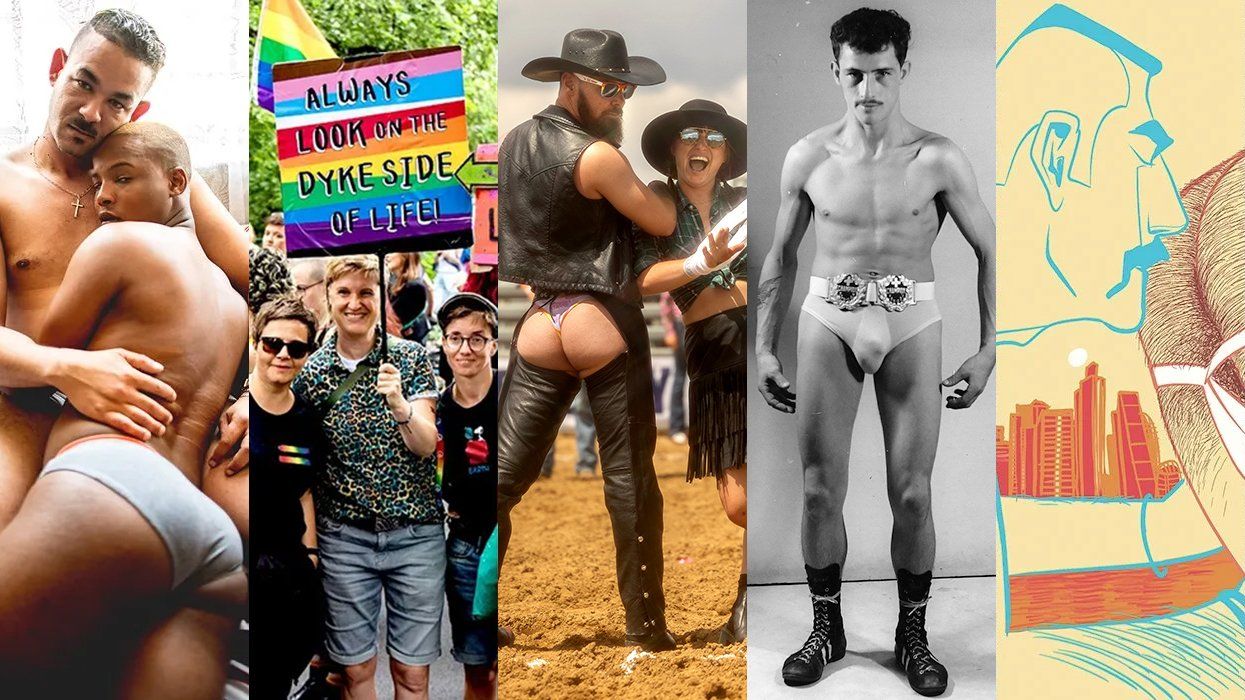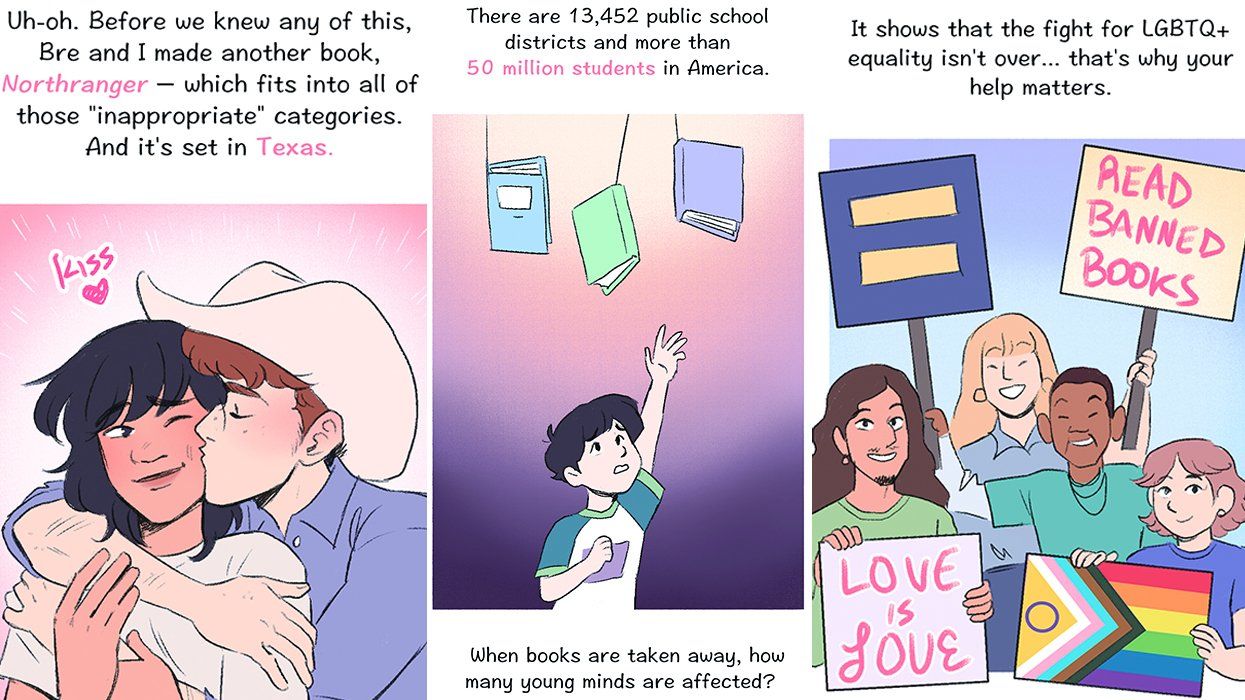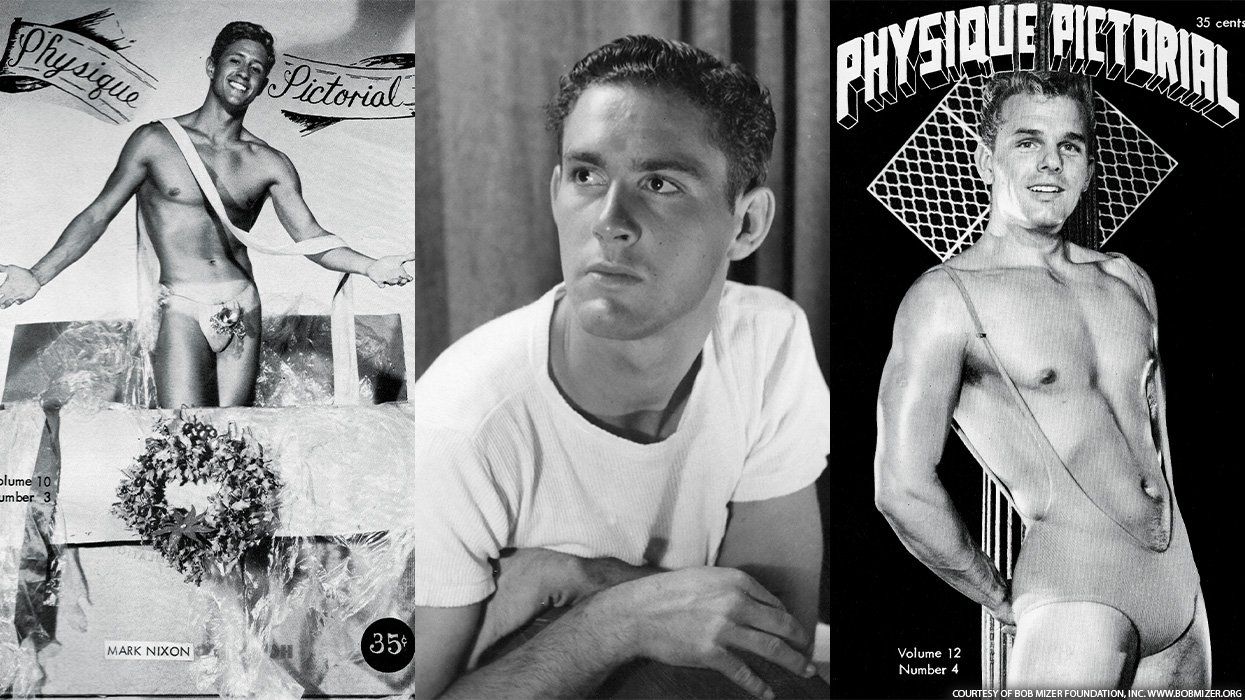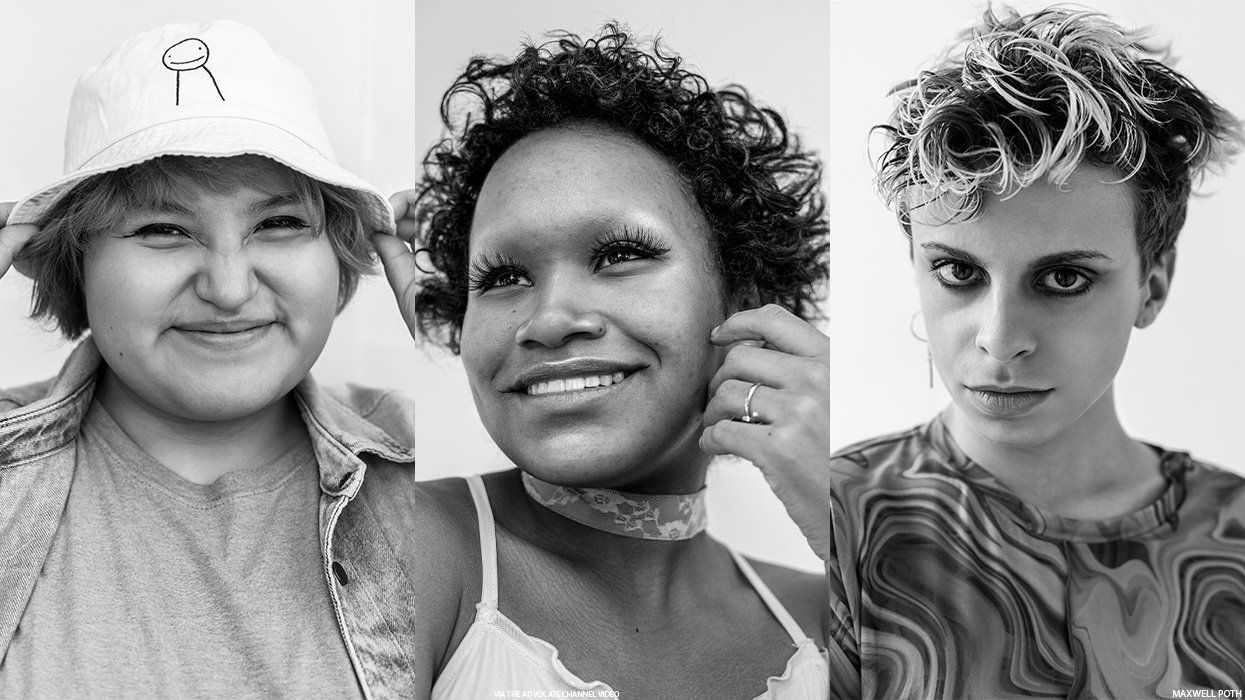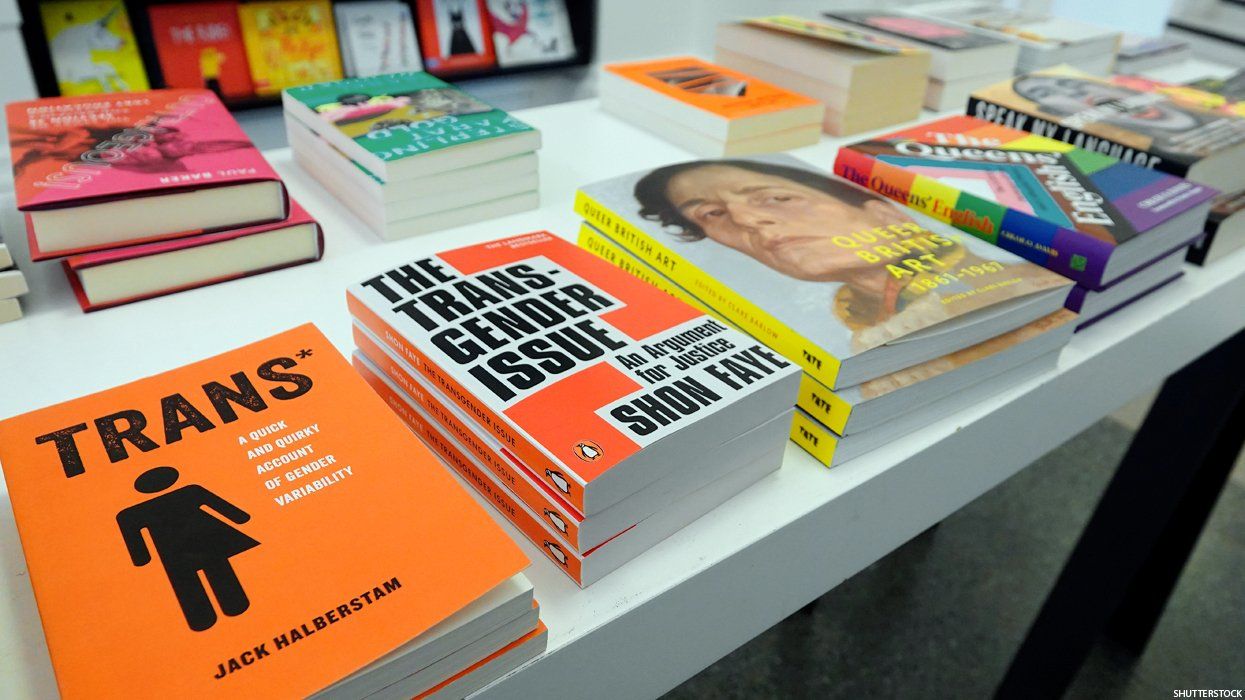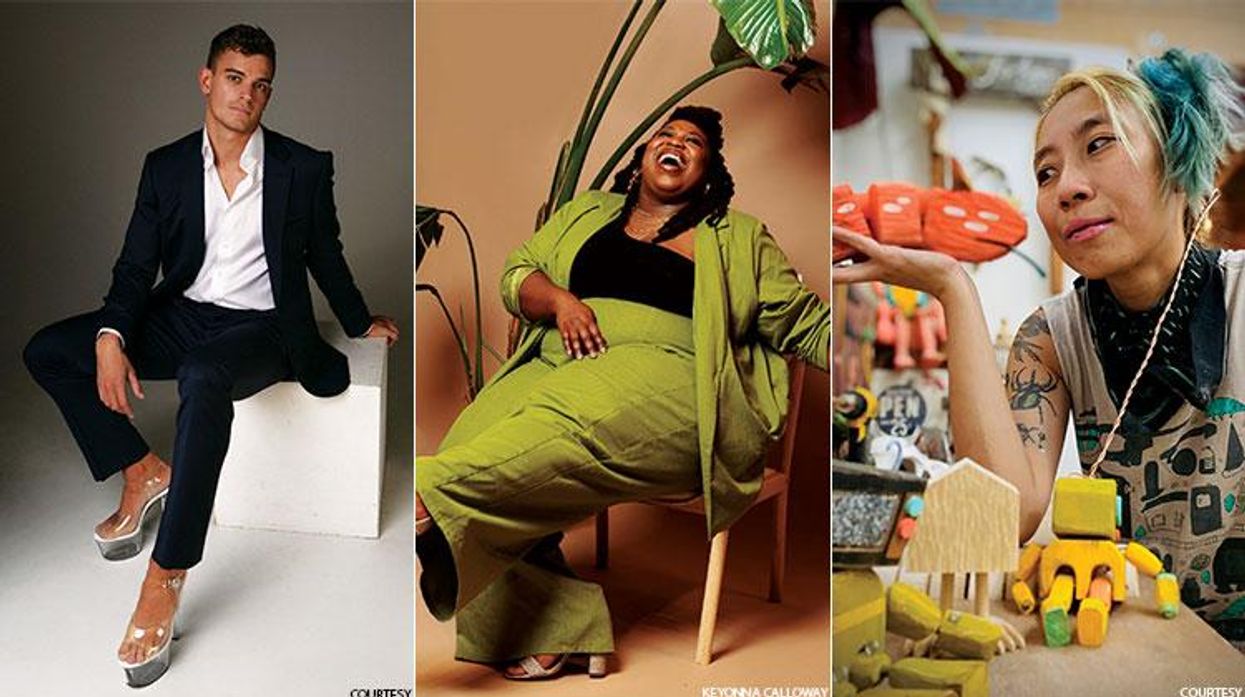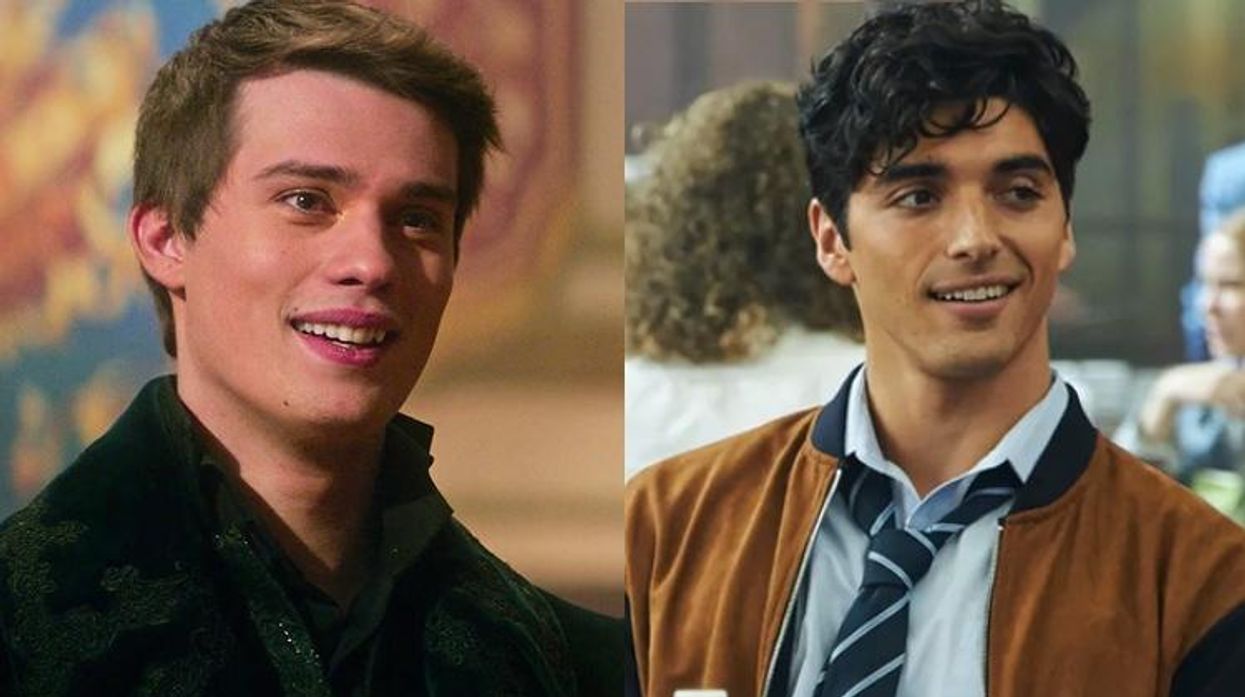Several years ago, shortly after his 1998 novel, The Hours, won the Pulitzer Prize, Michael Cunningham wanted to walk away from his life. 'I just thought, I don't want to do this anymore,' says the movie-star handsome writer, 57, sipping water on a cloud-scudded day on the upper deck of his beach house, perched above the bay in Provincetown, Mass. 'I don't want to be married, I don't want to write -- I don't want anything I've got anymore. I'm tired of it. You get overly accustomed to your life, and you want to shake it up, feel the way you felt when you were 20 -- that anything could happen.'
Cunningham, who lives in New York City most of the year, didn't walk away. 'I just couldn't do it because I love Kenny too much,' he says, referring to psychologist Ken Corbett, his lover of the past 24 years. Plus, says Cunningham, he accepted he was a writer for life, though he acknowledges, 'There's always the possibility that I could become a jeweler.' In fact, this afternoon, he wears, in addition to an old ripped gray tank top and jean shorts emblazoned with a homemade peace sign, two oxidized silver chains he made himself. 'I want to make things that aren't going to be critiqued or compared to my last embroidered peace sign or little necklace,' he says.
Cunningham's novels have long explored the intense push and pull of intimate relationships, the desire to 'shake things up' that makes us want to walk away from them, and the fear and, yes, love and pleasure that keep us in them. It was a theme that drove his acclaimed 1990 novel, A Home at the End of the World, and it certainly weighed heavily on The Hours, where, in all three of its ingeniously linked stories, set in different eras, characters are compelled to walk away from their lives. (Some do, some don't.) 'That's a natural human urge,' says Cunningham.
But in his sixth novel, By Nightfall, published this month, he applies that impulse for the first time to a straight male protagonist: Peter Harris, a charming, handsome, successful 40-something New York City art gallery owner whose career and longtime marriage to Rebecca, a lovely literary magazine editor, is imperiled when he becomes obsessed with Mizzy, Rebecca's beautiful, polysexual, ne'er-do-well drug-addict younger brother, who comes to stay with them. 'It started as a riff on Death and Venice, which is one of my favorite books,' says Cunningham, referencing the classic Thomas Mann novel about an older man who fixates on a gorgeous adolescent boy. 'I was interested in an eroticized obsession that wasn't quite as simple as a gay guy coming to terms with his true sexuality.' (Indeed, in the new novel, it's often hard to tell whether Peter is really gay or projecting all sorts of desires -- for his wife when she was young, for his own fading youth -- onto Mizzy, or both.) 'But Aschenbach' -- from Death in Venice -- 'ends up dead on a beach with makeup and a bad dye job,' says Cunningham, 'and Peter ends up rather differently.' Before the bittersweet, shrewdly observed novel resolves, however, Peter and Mizzy do end up kissing while wading in Long Island Sound, the enormous house of one of Peter's rich clients looming behind them.
What was it like for Cunningham, who for more than 20 years has been known for charting the inner emotional terrain of gay people and/or women, to write in the voice of a straight male? 'A little bit like writing about women,' he says. 'Not as much of a stretch as you might think. There are questions of character that are deeper than gender and sexual orientation which, at the level I'd have to call the soul, just don't matter.' Plus, he says, for many years he was especially close with a straight married man. 'We'd talk about our mates and complain about our lives,' he says, 'and I began to understand that his feelings about his wife were much closer to my life with Kenny than, say, the life of a certain gay friend who only sucks off guys who hurt him. I've always been married -- a one-man guy.'
He's also known in town as a kind of writer laureate; several years ago, he published Land's End, his meditation on Provincetown, where the ghosts of puritanical Pilgrims, who settled here before moving on to Plymouth, hover among naked bears -- the grizzled, not the grizzly, kind -- nuzzling in the dunes. A poverty-stricken renter here for many years, he's now among the landed. 'When The Hours was optioned as a movie, Scott Rudin gave me a certain amount of money,' he says, 'which was the exact cost of this house!' Part of a classically gray-shingled condo complex, the two-story townhouse -- all lumpy, shabby chic sofas, curiosa like several antique globes, and a black upright piano that Cunningham occasionally plinks at -- has a white wood-paneled upper bedroom nook that feels as though it floats over the vast expanse of blue bay. 'We're sitting in The Hours house!' he exults. 'Sitting on an Hours sofa, drinking water out of an Hours glass.'
What, just water? What about the Cunningham of old, who'd bring a Thermos of ice-cold martinis to his favorite beach here, Hatches Harbor, to gab away afternoons with his Ptown friends, who include the interior designer David Cafiero (he did Chlo' Sevigny's place in New York), the actor-writer James Lecesne, New York magazine editor Adam Moss, and John Dowd, perhaps the town's best-known painter? Cunningham says he's given up recreational drugs and all but stopped drinking save a glass of dinner wine. 'I've certainly stopped getting loaded,' he says. 'Basically, I found that I wasn't drinking less as time goes on.' These days, he says, his biggest vices are an occasional cigarette and the several cups of coffee he drinks while writing every morning -- except for Sundays, his day off. He just started a new novel, which he says is about 'people doing drugs in Bed-Stuy' -- a neighborhood in Brooklyn, whose artistic and literary renaissance fascinates him and often draws him out there when he's in the city.
Later today, he'll kick back and read, then play his ritual 5 p.m. billiards game at the Gifford House with his buds, the local pianist Billy Hough and art adviser Joe Sheftel. Then he and Moss and their boyfriends will grab dinner at the high-end cafeteria Frappo66 before catching Hedwig creator John Cameron Mitchell's short-run show at the East Village'style cabaret Enzo. (Mitchell ends up hauling performers Amanda Palmer and Margaret Cho onstage to sing with him.) That pattern -- writing in the mornings, beach in the afternoon, eating and goofing with arty friends at night -- is his life here in this gay boho paradise, and he doesn't seem to want to walk away from it. 'I have exactly the same day here over and over again,' he says, 'and I'm very happy with that day.'


